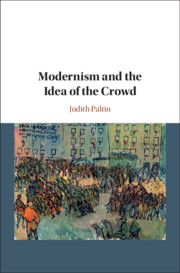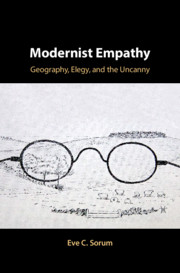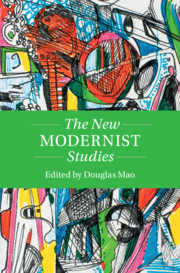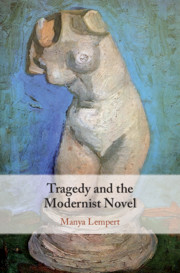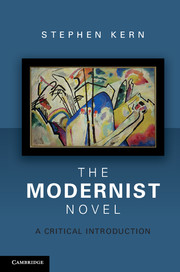Modernism and the Idea of the Crowd
£79.99
- Author: Judith Paltin, University of British Columbia, Vancouver
- Date Published: December 2020
- availability: Available
- format: Hardback
- isbn: 9781108842235
£
79.99
Hardback
Other available formats:
eBook
Looking for an inspection copy?
This title is not currently available on inspection
-
This book argues that modernists such as James Joyce and Virginia Woolf engaged creatively with modernity's expanding forms of collective experience and performative identities. Judith Paltin compares patterns of crowds in modernist Anglophone literature to historical arrangements and theories of democratic assembly to argue that an abstract construction of the crowd engages with the transformation of popular subjectivity from a nineteenth-century liberal citizenry to the contemporary sense of a range of political multitudes struggling with intersectional conditions of oppression and precarity. Modernist works, many of which were composed during the ascendancy of fascism and other populist politics claiming to be based on the action of the crowd, frequently stage the crowd as a primal scene for violence; at the same time, they posit a counterforce in more agile collective gatherings which clarify the changing relations in literary modernity between subjects and power.
Read more- Examines and analyzes crowds, political agency, and group performativity across a set of canonical and lesser known modernist works
- Offers a comprehensive anatomy of the social mind as theorized from within modernist studies, democracy studies, and literary studies
- Engages with a variety of period archives including fiction, drama, poetry, music, painting, newspapers, police and government records, published correspondence, manifestos, private writings, and exhibitions
Reviews & endorsements
'… dense but perfectly argued … Paltin's important, innovative study is published at an opportune moment.' Gerri Kimber, The Times Literary Supplement
See more reviews'The text itself is definitely easier to approach in Field's version as the tales are not obscured by countless footnotes and different kinds of brackets. With the amount of reconstructive work done by Field, it is visible that this kind of layout is a logical choice. It seems that the reader's comfort as well as usability and functionality have been thought out … an interesting addition to Arthurian literature studies and can be used both by students and academic scholars for different purposes.' Malwina Wiśniewska-Przymusińska, Studia Anglica Posnaniensia
Customer reviews
Not yet reviewed
Be the first to review
Review was not posted due to profanity
×Product details
- Date Published: December 2020
- format: Hardback
- isbn: 9781108842235
- length: 290 pages
- dimensions: 150 x 230 x 20 mm
- weight: 0.5kg
- availability: Available
Table of Contents
Introduction. Night Terrors
1. Compositions of the Crowds of Modernism
2. Crowd Involvements and Attachments
3. Crowds and Transformation
4. Crowds and Agility
Conclusion. Assembly and the Agile Becoming-Subject.
Sorry, this resource is locked
Please register or sign in to request access. If you are having problems accessing these resources please email [email protected]
Register Sign in» Proceed
You are now leaving the Cambridge University Press website. Your eBook purchase and download will be completed by our partner www.ebooks.com. Please see the permission section of the www.ebooks.com catalogue page for details of the print & copy limits on our eBooks.
Continue ×Are you sure you want to delete your account?
This cannot be undone.
Thank you for your feedback which will help us improve our service.
If you requested a response, we will make sure to get back to you shortly.
×
